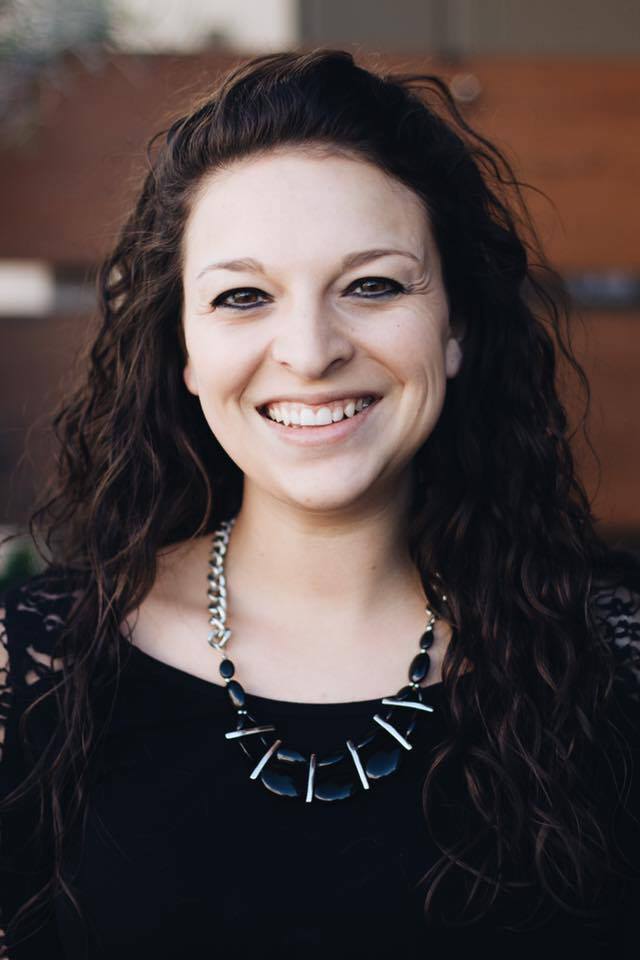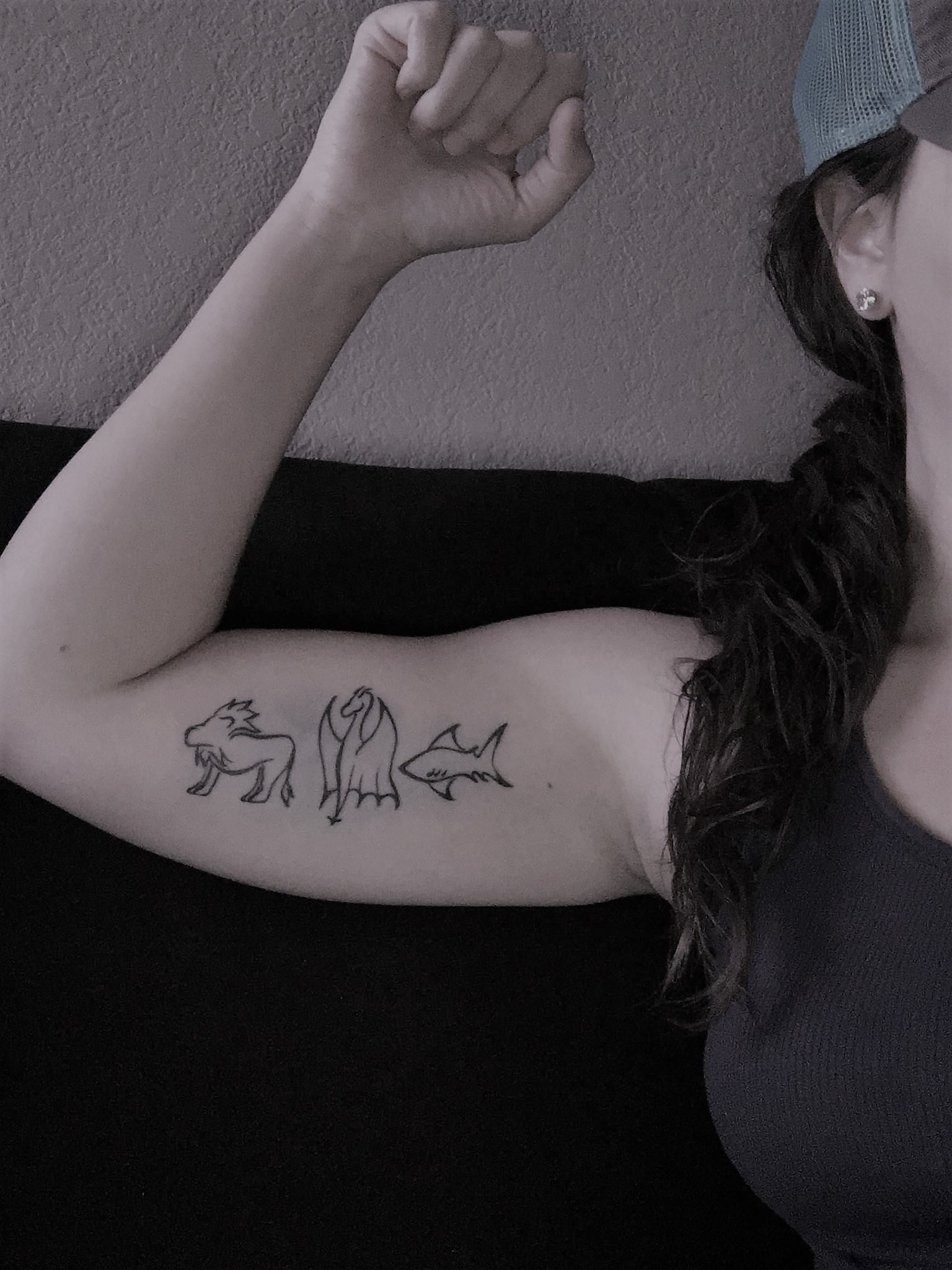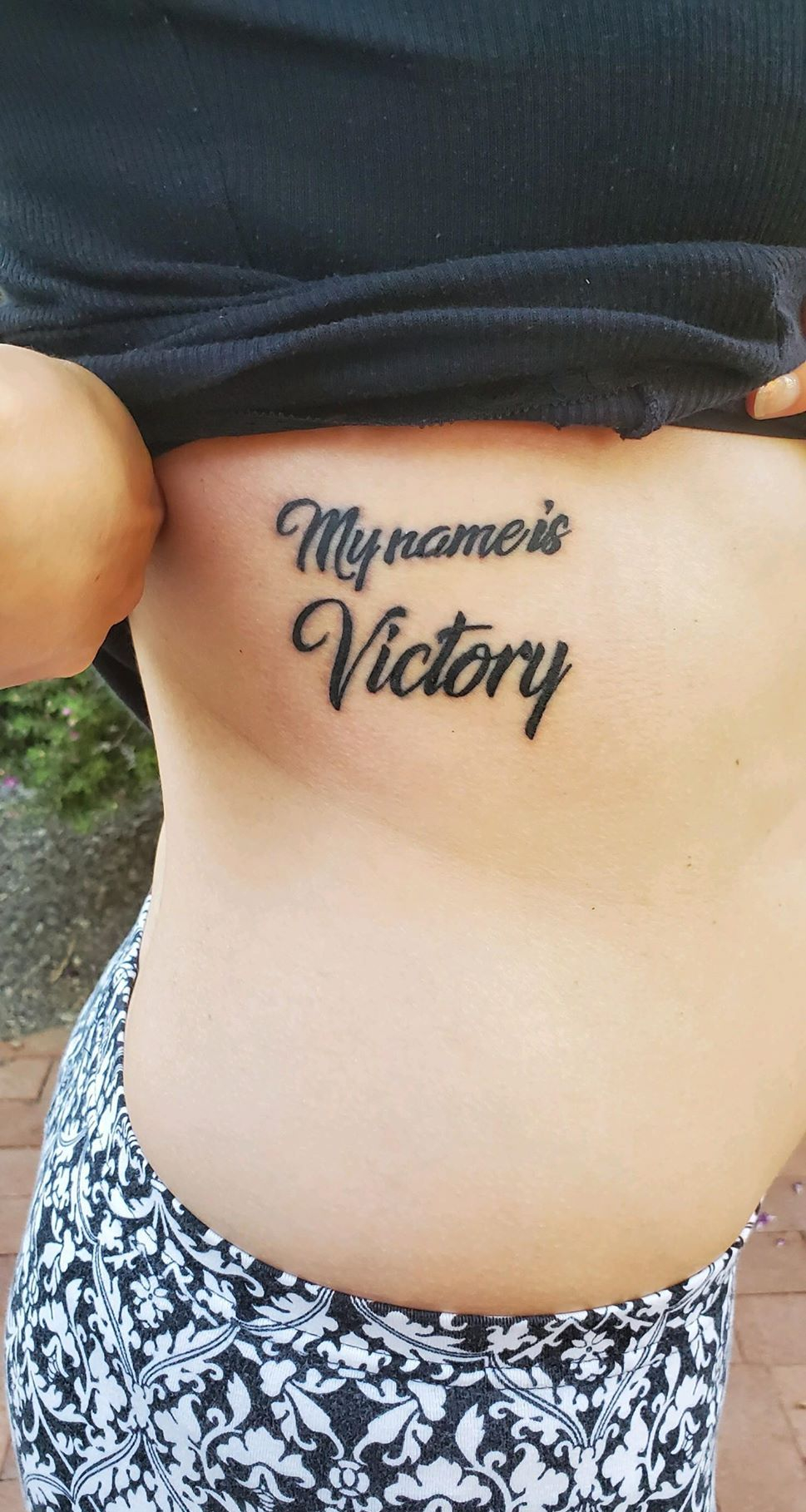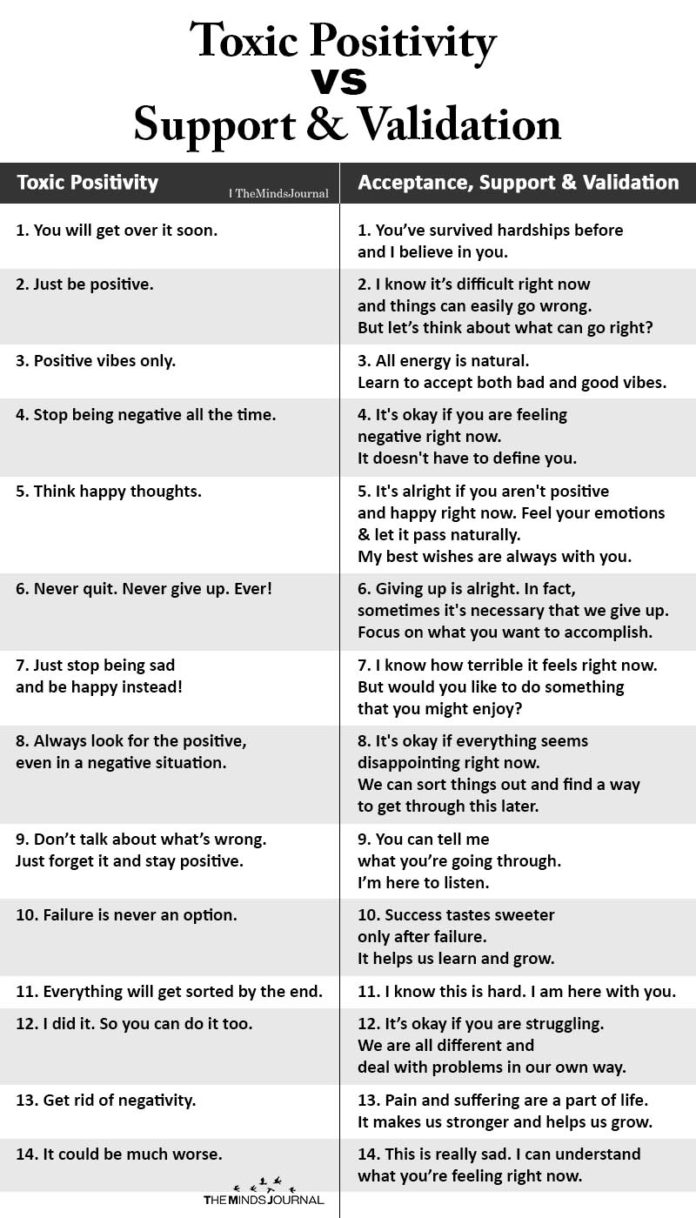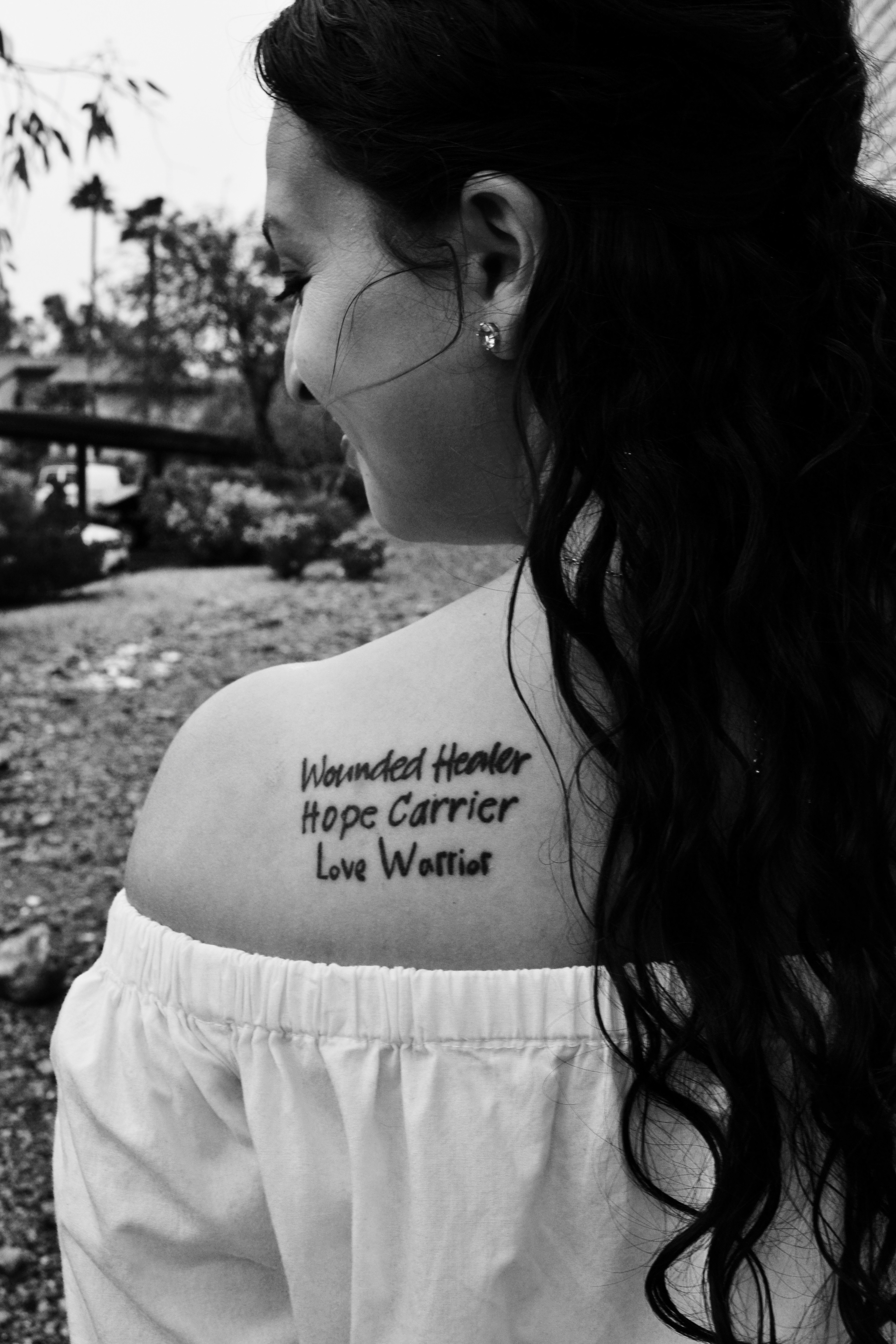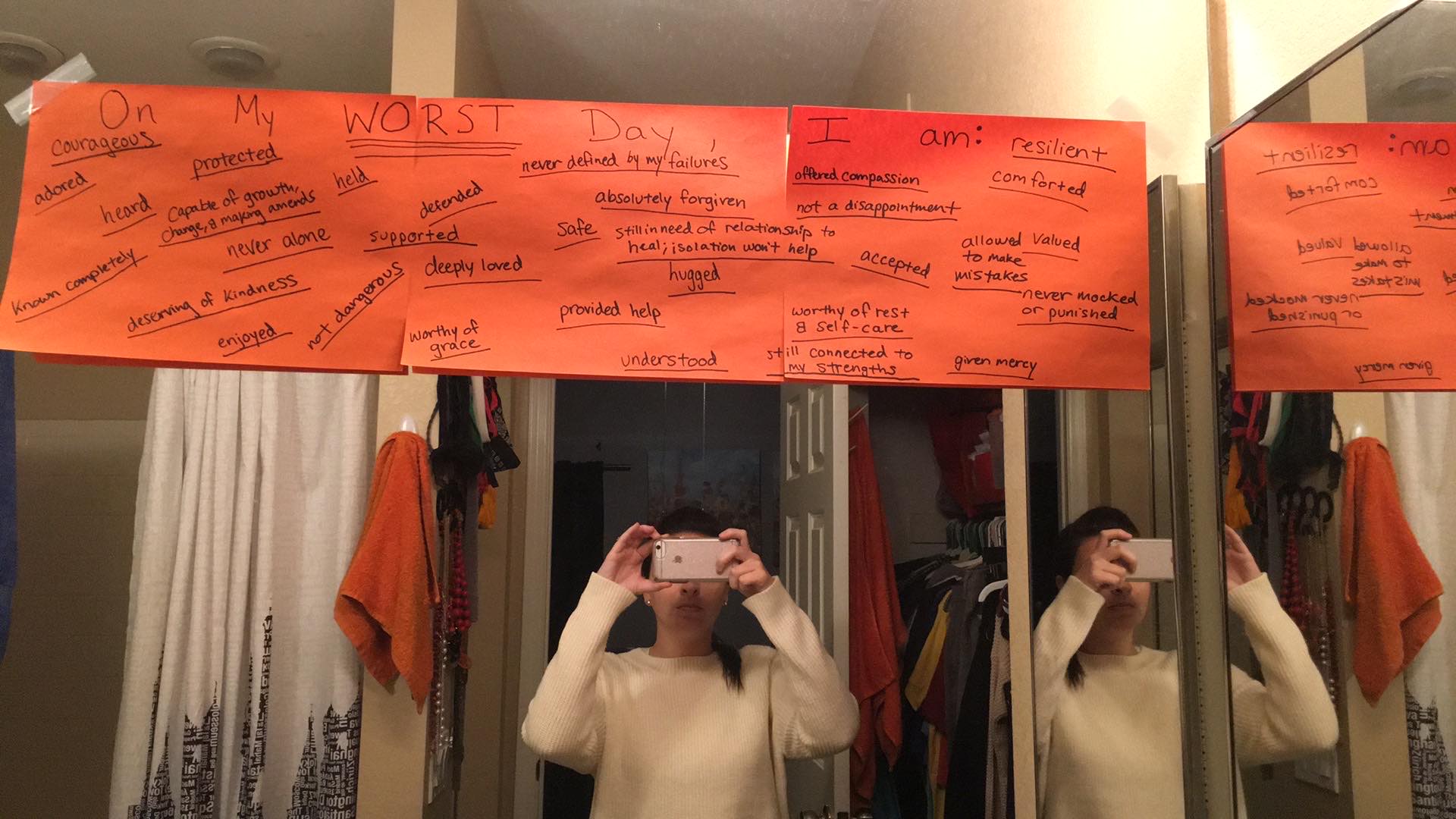“In what ways have you been asked to apologize for your body?”
– Sonia Renee Taylor, “The Body Is Not An Apology”, p. 14
As I sat in my backyard with the gentle Phoenix January wind blowing on my face and through my hair, reading these words made me snort in derision and stopped me in my tracks. I sat there for several minutes trying to pinpoint in what ways and for how long I’ve been asked to apologize for my body. How far back it was to when I didn’t feel like I had to apologize for my body. How old was I?
15? Nope, earlier than that.
12? 10? Younger? Many people I know would absolutely say younger than 10.
How do we even get here? Well, let’s start with the basics.
Women have long been told that we can’t acknowledge even basic bodily functions because it isn’t “ladylike”. That somehow if we acknowledge that our bodies exist and do what they were designed to do (even if that’s messy or not very fun sometimes), that it will diminish our attractiveness and appeal (*insert eye roll). We can’t bloat, burp, or fart. Don’t mention that you poop (even though every human does it every day), but maybe you can mention that you have to pee. Maybe. Especially don’t talk about diarrhea, because that’s pooping with urgency, and we can’t acknowledge a bodily function, plus that women have bodily functions with urgency.
You can’t vomit. If you have periods, don’t let most men know about it because it will make them uncomfortable. Definitely can’t have clogged pores on our faces, much less have breakouts anywhere else (like on our backs or butts). We can’t sweat or smell. No bad breath ever, whether it’s first thing in the morning or after you’ve eaten something particularly aromatic. For sure, you need to apologize for having hair anywhere but your eyebrows (which need to remain perfectly plucked or waxed), eyelashes, or on your scalp, because heaven forbid it grow above your lip, on your arms/hands/fingers, in your armpits, on your stomach or lower back, on your legs, around your genitals, or on your feet/toes (and if it does, you must be fastidious about removing it). If we do admit that any of those things have in the past or do currently exist within our bodies, we often feel like we must do so in hushed tones, careful not to let anyone in on the “secret” that our bodies do what all bodies do from time to time.
Certainly another reality that is by no means rare is that people of all body types often develop stretch marks or cellulite, but apparently our bodies aren’t allowed to change. Our culture would have you believe that shrinking your body is always better and expanding is always a failure. (Unless you’re pregnant, then that’s fine. But also don’t get TOO out of control with the weight gain…… See what I mean? Even there, people make judgment calls about what weight gain is okay during/after pregnancy and what’s not.)
Many of us compare our current weight to what it used to be, 5 years ago or 10 years ago, and feel like we’ve “let ourselves go” (even though for most of us, thinking that we will remain the weight we were in our early 20s is completely unrealistic). Plus there’s this whole global pandemic thing, where many of us have gained some weight in the last 2 years due to massive amounts of stress and more sitting around our houses trying to minimize the potential catching and passing on of Covid-19. (Ironically I work out more consistently now than I did 5 years ago. But then there’s the whole our metabolism after 30 looks different than it did before 30). Logical reasons for a little weight gain as we are all just trying to figure out how to survive. But we consider ourselves less attractive and less appealing in our right-now-bodies, because sexy bodies apparently can only look a certain way.
And apparently 2 of the most important things that women need to be sexy are big boobs and a flat stomach.
Regarding the former item in that pairing, I’ve absolutely felt like less of a woman in many years of my life because of my figure. I genetically got the “petite figure” gene, which our culture erroneously lauds, but then shocker: genetically that also meant a smaller chest. Even well into adulthood, I sometimes felt like I couldn’t ever be sexy or beautiful, only “cute” like a teenage girl who hadn’t quite grown into her body yet. Like somehow if someone picked me, it would be “settling.” Statements like “real women have curves” left me feeling lacking. (And I absolutely admit that women who are curvy experience way more discrimination and judgment in our society due to fatphobia. That even if they have the bigger chest, they also have curves in other places and now somehow they take up too much space.)
As for the latter, the concept of women needing to have flat stomachs….. It feels like for most of us a mirage that we spend years chasing. Even though our abdomens expand and contract multiple times a day because our stomachs and bladders are doing what they are designed to do, we zealously believe that it must appear that our stomachs are flat always, that the expanding must happen invisibly. That our stomach needs to look flat, with no rolls, whether we are laying or sitting or standing or dancing or hunched over or squatting or what have you.
In an episode of the newest season of “Queer Eye”, Tan France was talking to one of their heroes Angel, who happened to be a trans woman. As Angel was trying on clothes at a store with Tan, she mentioned that she struggles with not having a flat stomach (mind you, Angel works out all the time and is a power-lifter. Very fit and still didn’t have a flat tummy). Tan gently reminded Angel that basically every woman he knows has a roll on their stomach. I was so grateful for that reminder. Women: unless you eat really restrictively and work out a ton, and perhaps have the help of genetics, you’ll likely have some fat around your mid-section. Because genetically, women often hold fat around their midsections. For the women who choose to have children, our bodies need to hold extra fat in our midsections. But even though it is incredibly normal, most women I know would say one of the things they dislike the most about their bodies is their non-flat stomachs because we see too many photo-shopped/liposuction-ed/actors-or-models-who-can-pay-thousands-for-personal-trainers-and-can-work- out-hours-a-day-and-who-eat-really-restrictively types of images of what stomachs are “supposed” to look like.
So yeah, that’s what the grand majority of women are regularly asked to apologize for about their bodies.
And that’s not even touching things like chronic illness or disability, like racism, like trans or non-binary bodies, like sexuality. And even in all this, I recognize my privilege. I get that racism is alive and well, that BIPOC face challenges and judgment and are asked to water down their “non-white-ness” on a regular basis. I get that while I deal with chronic illness, I don’t have a disability that is visual and the world is still largely accessible to me in a way that it is not for many people. Trans people continue to fight for basic kindness and respect from the medical community or how to get their gender marker changed on legal documents or to be able to use bathrooms that match their gender identity. They are asked to apologize for their bodies, for making people uncomfortable or taking up space or for “inconveniencing” people.
I cannot speak to most of these things from personal experience. But I can speak to a few of them.
I recently finished “What Doesn’t Kill You: A Life with Chronic Illness – Lessons from a Body in Revolt” by Tessa Miller (if you have a chronic illness or love someone who does, I HIGHLY recommend it). I didn’t realize how deeply I needed it, how important it feels to hear the voices of others who walk through life with chronic illness. I’ve spent 16 years, since I was 16 years old, apologizing for my chronically-ill body. For half of my life, I have known that my body couldn’t do all that the bodies of many other young people could. I knew it the summer between my junior and senior year of high school during a 2 week “work crew” with my youth group, when the teens around me told me that I was exaggerating how much pain I was in, that I was doing it for attention, or that I was lazy and didn’t want to work as hard as they did. I knew it at 25 when I was in Hawaii and a friend of my husband’s who lived locally invited us on a hike to a waterfall, and I had a meltdown in our hotel room because I was afraid to go. Afraid that the “simple” hike wouldn’t be simple for me, that I’d have a flareup and be in pain in front of people I didn’t know well, and end up “ruining” everything. I continue to know that things like hiking, going to the gym, taking a yoga class, or even walking around Disneyland for a day can feel too vulnerable to do with people I don’t know well because it can feel so hard to say I can’t keep up with them. Another inconvenience, something to apologize for.
And then there’s sexuality. Coming out of purity culture and trying to unlearn all of the harmful beliefs I was taught has been a war in and of itself. Mix that in with a sexual pain disorder, that is complicated and perpetuated by my other chronic pain issues, and there seems to be an endless myriad of ways that both the Christian culture I came from and our hyper-sexualized American culture tell me that I’ve failed. Before I got married, I needed to control, contain, dampen and extinguish any sexual thoughts and certainly needed to keep myself from acting upon them. Then magically, I was supposed to put the ring on my finger, say “I do” and then feel free to have glorious, uninhibited, “God-approved” sex 3 days a week to make sure my husband stayed satisfied/didn’t become addicted to porn/cheat on me (please note: my actual husband is incredible and have never said/believed these things. This is just the BS that churches/pastors/Christian books frequently communicated). So even though my actual husband has been incredible, I still felt absolute crushing amount of shame when vaginismus showed up on my wedding night and has been a part of my body, my marriage, and my sex life for the last decade.
It has taken a LOT of therapy to release a lot of that shame, and it’s still something I wrestle with. No one ever intentionally taught me to think about having my own sexual ethic and boundaries, about what it means to figure out a sexuality that actually works for me in my real life, with my actual circumstances, with my actual body. There was never a discussion about the wide range of frequency in desire that is not always dictated by gender. There certainly were never discussions for many people that I love about the potential of being gay, lesbian, bisexual, or asexual because those weren’t even considered as valid realities. There were so much pressure attached to this very narrow set of expectations around sex, that if you varied even slightly, there was so much shame and stigma attached. No room for becoming or learning or changing. Another thing to be sorry about and to apologize for.
I’m really really sick of it. Aren’t you? Of being sorry for existing. Of thinking we need to be quieter and take up less space. Of feeling like we need to hide normal human experiences. Sick of feeling like we need to apologize for our bodies just showing up in the world like a normal human body would?
So I’m not sorry.
Or I’m trying not to be. It’s something I want to keep choosing, to not be sorry for this body of mine, for the rest of my life.
And I’m committed to making room for all the humans around me to feel less sorry about their bodies too.
That’s a reality worth fighting for.
